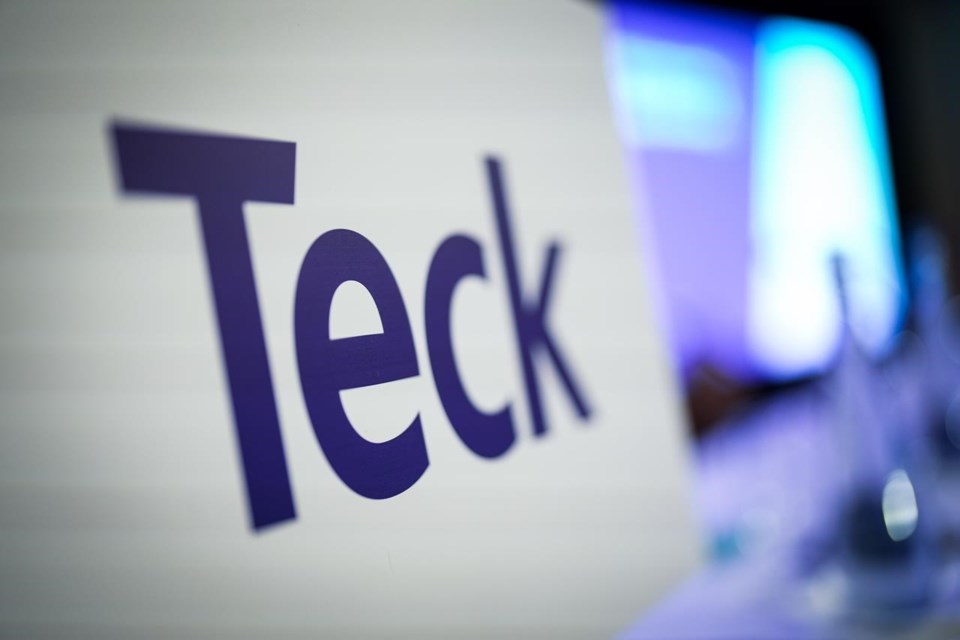The British Columbia government has changed its tune on a long-requested investigation into contamination from its mines flowing into U.S. waters, opening the door to progress on an issue that has drawn the attention of President Joe Biden.
The province has confirmed to The Canadian Press that it would now welcome a role in such an investigation for the International Joint Commission, a body created in 1909 to resolve water-related disputes between the two countries.
"B.C. has proposed a role for the International Joint Commission to act as a neutral third party — bringing representatives together to share progress, validate issues and facts, and gather information in a way that is respectful and inclusive of Indigenous knowledge," B.C. Environment Minister George Heyman said in an email.
"The Government of Canada is considering our proposal."
It's a significant move from the province, which has long struggled with how to mitigate selenium contamination from coal mines in the Elk Valley owned by Teck Resources. Although Teck has spent $1.4 billion on monitoring, management, research and treatment, levels of the element toxic to fish remain high in waters that flow into Lake Kookanusa, a reservoir that crosses the border between the U.S. and Canada and feeds American rivers.
Since May 2022, the commission has sought to involve both countries in an investigation into the problem. Such an investigation, called a reference, is supported by the Biden administration, the Environmental Protection Agency, the states of Montana and Idaho, as well as First Nations and environmental groups on both sides of the border.
Both Biden and Prime Minister Justin Trudeau have promised that a deal would be reached by the end of the summer.
However, B.C.'s resistance to having an international body poke into its backyard has blocked progress. Until now.
"That's really great news," said Tom McDonald, chairman of the Confederated Kootenai and Salish tribes in Montana.
"We have six weeks left to meet the timeline. Immediate action in the next few weeks is critical."
Kathryn Teneese, chairwoman of the Ktunaxa Nation in B.C., also welcomed the move.
"We're very pleased they've changed their tone," she said.
Canada wouldn't say how B.C.'s change of heart might affect talks over setting up the investigation.
"Discussions among our officials and with Indigenous nations and tribes have continued on this issue," Global Affairs spokesman Jean-Pierre Godbout said in an email.
"We are committed to these ongoing efforts to work together to find an appropriate path forward to ensure the health of the watershed."
But McDonald and Teneese warn that the commission, established under a formal treaty between Canada and the U.S., has its own process that has worked for 114 years and shouldn't be watered down.
"Why don't we just let the IJC do its job?" asked Teneese. "It's critical the IJC is part of the solution.
"It is specifically designed to address these issues. Let's not try and reinvent it."
"Just follow their process," said McDonald.
In an email, U.S. Embassy spokeswoman Ariel Pollock also supported the commission.
"The (Commission) is uniquely suited to respond to the need for impartial recommendations and transparent communication, build trust, and forge a common understanding of this issue among local, Indigenous, state, provincial and federal governments, as well as stakeholders and the public in both countries," she said.
"We are discussing a range of possible actions to address the pollution to safeguard our shared waters, and respect and uphold Tribal sovereignty while employing responsible mining practices."
Teck spokesman Chris Stannell said the company will work with a joint investigation.
"We support increased transboundary co-operation on water quality management to protect aquatic health, uphold Indigenous rights and maintain responsible mining in the Elk Valley," he said in an email.
He said the company is now removing up to 99 per cent of selenium from treated water — although much of the selenium flowing into the watershed comes from accumulated decades of waste rock.
Selenium levels in the Elk River watershed are significantly higher than B.C. health guidelines and have been for years. Elevated levels have also been measured on the U.S. side of Lake Kookanusa.
Selenium damages fish populations by reducing their reproductive success.
"Every living creature has a right to live," said McDonald.
"It's not our place to wipe out a fishery. It's our purpose, as it should be for every human being, to maintain those animals in perpetuity."
This report by The Canadian Press was first published Aug. 16, 2023.
Bob Weber, The Canadian Press



